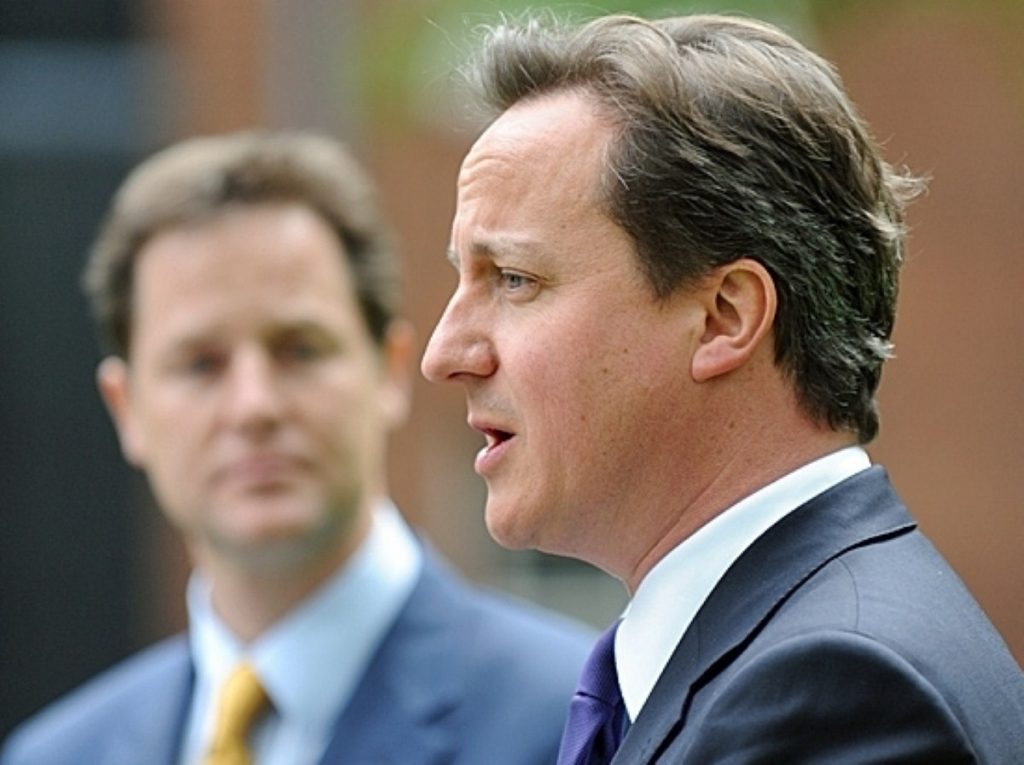Damp squib: British bill of rights report backs Human Rights Act, too
By Charles Maggs Follow @charlesmaggs and Ian Dunt Follow @IanDunt
The commission set up by the government to investigate the possibility of a British bill of rights believes it should go ahead, but alongside the current Human Rights Act.
The panel of legal experts decided on a 7-2 majority that a new bill should be introduced to "incorporate and build on the UK's obligations under the European Convention on Human Rights".
"We hope that our report, based as it is on extensive consultation, will help people to reach an informed view on the issues it covers," the commission's chair, Sir Leigh Lewis said.


"We are united in believing that there needs to be respect for the existence of different intellectually coherent viewpoints in relation to the human rights debate, and in believing that the debate needs to be well informed and not distorted by the stereotypes and caricatures that have all too often characterised it in recent years."
But two of the committee members Helena Kennedy and Philippe Sands, disagreed with the majority's findings, arguing that the report did not adequately cover the shortcomings of the current Human Rights Act.
The report's findings will not satisfy Conservative rebels who want to see the Human Rights Act abolished and replaced with a British bill of rights.
They report was also branded a waste of time by shadow justice secretary Sadiq Khan.
“The Commission was a classic political fudge, designed to paper over the cracks within the Tory-led government, and today’s report is a dog’s breakfast as a result," he said.
"The Human Rights Act is our bill of rights, and already provides legal protection against torture and slavery, and enshrines in law the right to liberty, to open and fair justice and to protest."
What could have at one point become a seminal document sparking a reappraisal of Britain's relationship with Strasbourg now appears to have become another victim of coalition tensions, particularly over Europe and human rights.
Legal experts on the commission had been tasked by David Cameron and Nick Clegg with investigating the case for a British bill of rights.
Many Tories hoped it could replace the despised European Convention on Human Rights, which ties the hands of parliament on issues such as prisoner voting rights but also safeguards vital human rights provisions.
Clegg and his allies in Cabinet – including former justice secretary Ken Clarke – insisted any new bill would need to incorporate the European Convention wholesale.
At one point early in the coalition, it appeared Clegg and Cameron might use the British bill of rights to entrench British civil liberties in law and prevent a future government launching an authoritarian assault on hard-won freedoms.
But the entire consultation process has been criticised by human rights group Liberty.
"This 18-month-long shambles wasn't an attempt at papering over cracks of consensus on rights and freedoms but at bridging the Grand Canyon," said the group's director, Shami Chakrabarti.
"The majority includes people who would replace human rights with citizens’ privileges that can be stripped away by government – they ignored their consultation responses and own terms of reference which were supposed to be about building on Convention rights, not destroying them."
The process became dominated by bitter in-fighting, as the competing motivations around the idea of a bill of rights brought it to a standstill.
Michael Pinto-Duschinsky resigned from the commission when it refused to investigate the relationship with the European convention. His departure was preceded by a letter from seven fellow commissioners demanding he be removed from the body as he was "significantly impeding its progress".
Writing in the Telegraph today, current justice secretary Chris Grayling appeared to have already moved on from the report, when he said he might call for Britain's withdrawal from the European court of human rights if the Conservatives won the next election.
However the report was praised by campaign group Unlick Democracy, who believe that a new bill of rights could be more accepted by the public.
As the Commission has identified, one of the weaknesses of the Human Rights Act is that it suffers from a lack of public ownership," said the group's deputy director Alexandra Runswick.
"We need to give people a sense that these are their rights if we are to challenge the misleading portrayal of it being a ‘criminals’ charter’."









